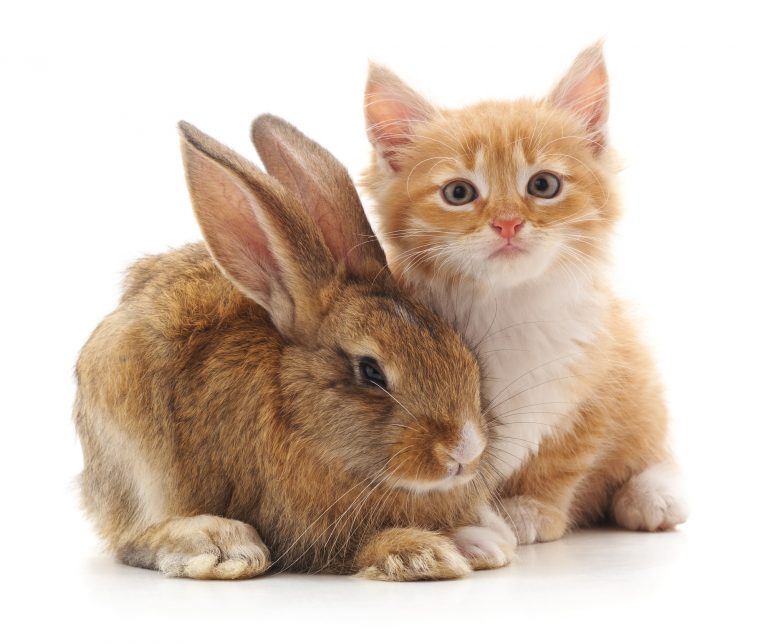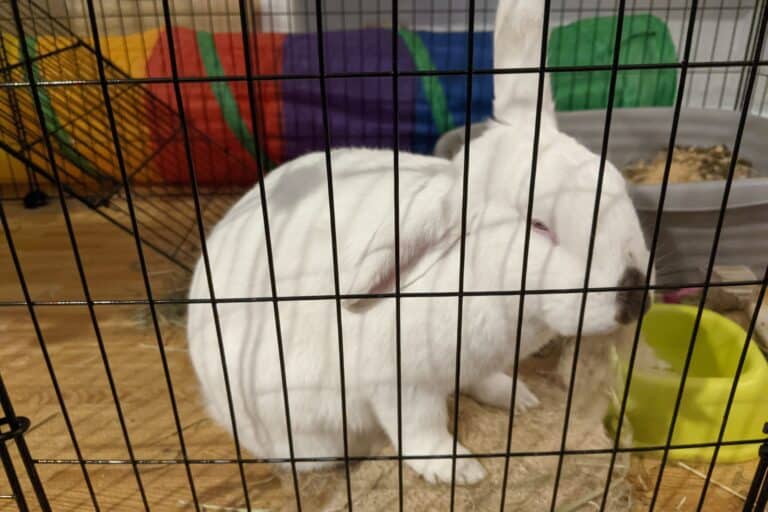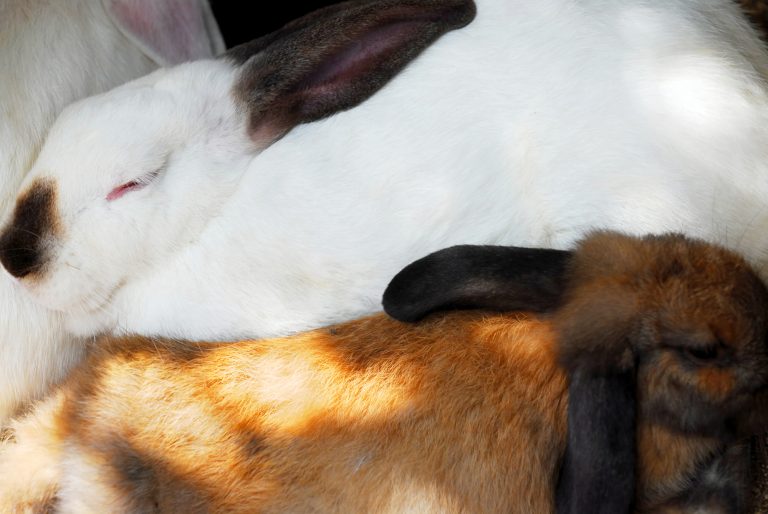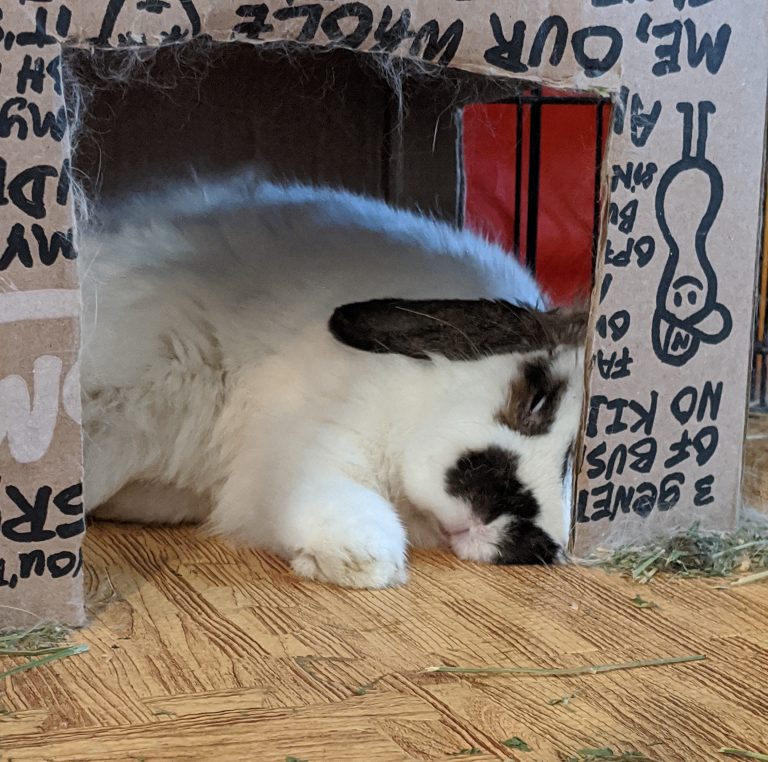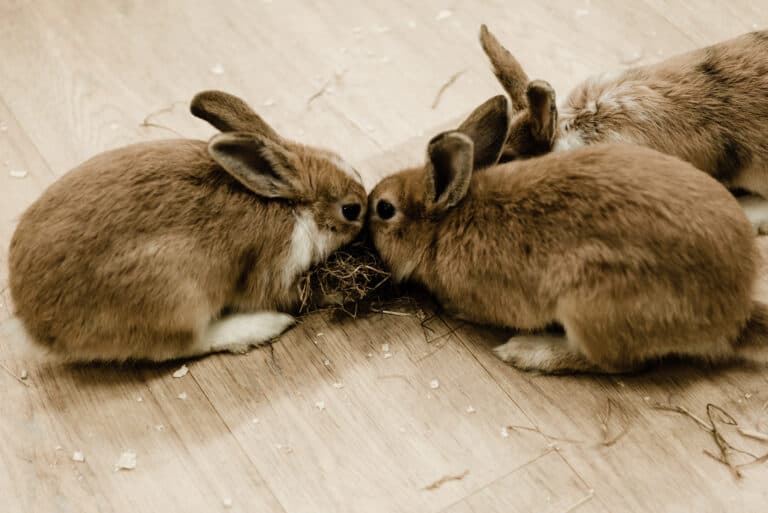Do Rabbits Bite? Understanding Why & What To Do
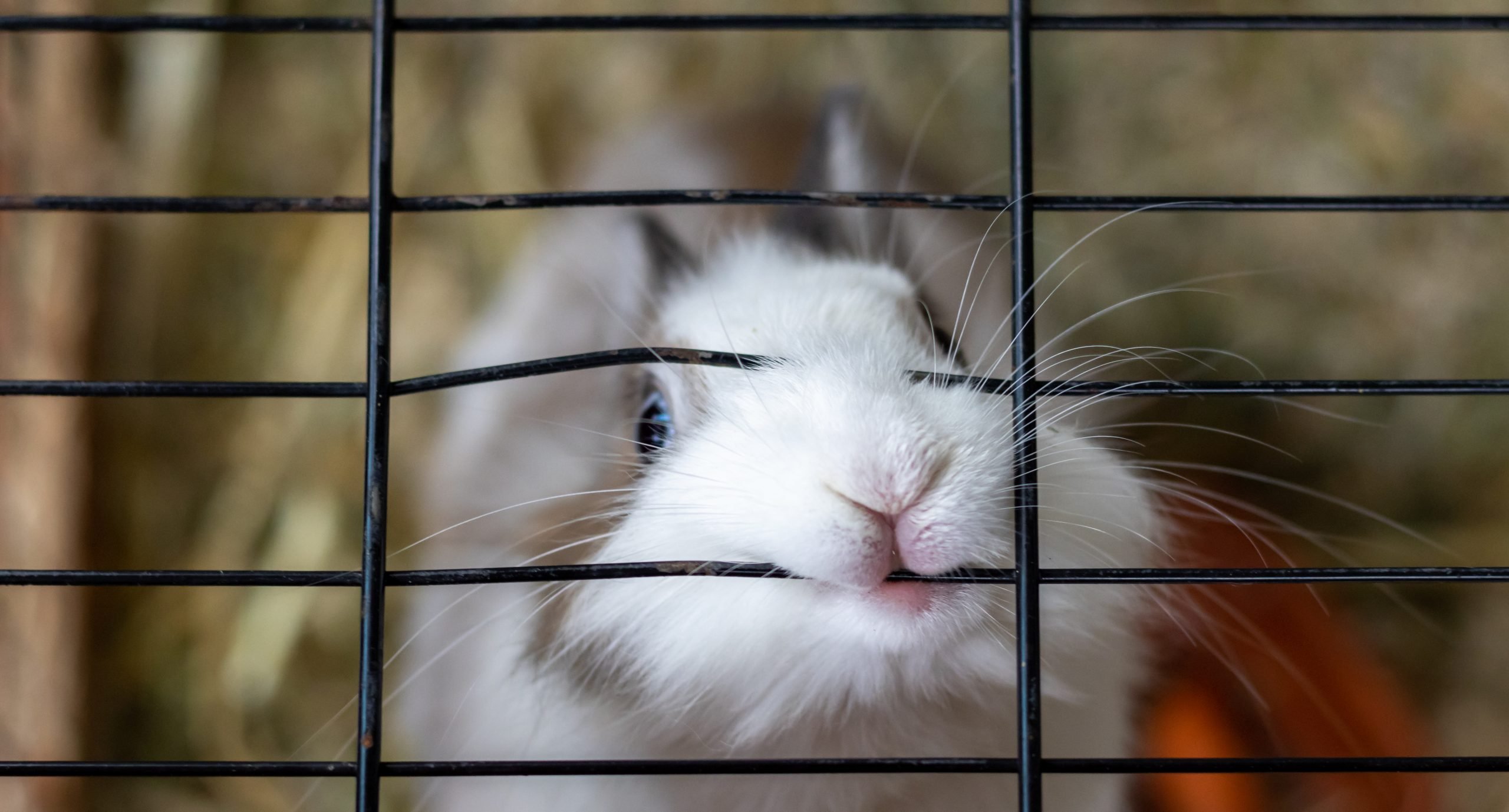
For anyone who’s never taken care of a pet rabbit before or if you’re a new rabbit owner, it’s probably hard to believe that these cute and cuddly fur babies could bite. After all, rabbits are such gentle creatures, and they look incapable of hurting a fly. So, do rabbits bite? And what are the possible causes for such unwanted behavior?
Do Rabbits Bite? Key Take-Aways
Like most companion animals, rabbits can display aggressive behavior, ranging from small rabbit grunts to growling to flopping to even rabbit nips. (Some are more bothersome than others!) One of the most troubling behaviors you can encounter if you choose to have pet rabbits is biting.
Not all rabbits bite, of course. But if yours does, don’t despair. You’ll just have to know the most common reasons for a rabbit’s bite and the different ways to deal with it so your pet bunny is the sweet and lovable companion you expected.
Understanding Aggressive Rabbit Behavior
No, it doesn’t mean that your new rabbit hates you or that you had the great misfortune of picking a wild rabbit. Biting is a natural behavior in rabbits, even though most people don’t think these timid creatures can show aggression. Rabbit’s bite as a way to protect themselves or when something is not right. There are rare cases when a rabbit is truly an angry bunny, but in most cases, there is a reason a rabbit bites in the first place.
The Reasons Rabbits Bite
1. Territorial Behavior
Like most animals who are social creatures, rabbits in the wild need to establish social hierarchies. To show dominance, they use various methods, such as snorting, lunging, licking, and, yes, biting. Although you may not be adopting a wild rabbit, he or she can still retain the instinctive need to display this aggressive behavior.
2. They Need a Safe Place
Other animals prey on rabbits. Even in a domestic setting, you may still need to protect your pet rabbit from predators, especially if your bunny lives outdoors. In an indoor setting, even young children can spook a rabbit. Because of their vulnerability, rabbits may bite to defend themselves if they feel threatened. If you pick up your pet, he or she may react by biting if they’re not used to being held.
3. Food Bowl Aggression
In the wild, rabbits compete for food. During periods of scarcity, they need to fight to protect what little they have. This is seen as unwanted behavior in domestic pet rabbits. So, even if your bunny has a strong bond with you and gets plenty to eat, they may still consider you a threat. Rabbit biting during feeding times can indicate that your pet is protecting its resources.
4. Due to Hormones
Don’t be surprised if your sweet, friendly baby rabbit suddenly becomes aggressive when they turn around three months old. Rabbits typically reach sexual maturity by then. At that age, their raging hormones alter their behavior, and an unaltered rabbit may bite as a result.
For example, they usually compete for territory in the wild, and they view their cage as their home. So placing your hand inside the cage of your maturing pet may cause them to give you a little nip for intruding into their haven.
5. A Sick Rabbit

Because they’re prey animals, rabbits don’t usually display indications of illness or pain to avoid alerting predators of their weakness. A sudden change in behavior, such as unusual grumpiness, can be your pet’s way of saying that he or she is sick. Sometimes, if they aren’t given an appropriate chew toy, a rabbit’s teeth will cause dental issues as they continue to grow. If your typically friendly bunny suddenly bites you, a visit to a rabbit veterinarian for a check-up would be a wise move.
How to Stop Your Rabbit from Biting
Understanding the causes behind rabbit biting can help you modify your pet’s behavior and correct any bad habits. Here are some of the different ways to stop your rabbit from lashing out at you or their companion:
1. Don’t Reward Rabbit Biting
The easiest thing to do when your rabbit bites is to move away. However, that tells your pet that biting leads to the result they want and reinforces the negative behavior.
Instead of letting your bunny succeed in its attempt to show dominance, for example, you should be the one to assert dominance over your rabbit. The best thing to do is:
- Make a loud noise: This alerts your pet that you don’t approve of the behavior.
- A time-out: If your pet enjoys play time out of his or her cage, placing them inside for a short time-out when they bite may help send the across the message that biting leads to unpleasant consequences.
- Gently pushing your bunny to the floor: After placing your hand over your rabbit’s head, very gently push him or her to the floor and keep them there for several seconds. This act will indicate to your pet that you’re the dominant one and not the other way around.
2. Socializing
Some rabbits bite when they feel threatened. Socializing your pet is one great way to address the issue. However, don’t force your pet to be around people if he or she is extremely shy. Instead, let your bunny make the first move.
Have the person who your pet considers a stranger sit or lie on the floor and wait for your rabbit to approach in their time. Eventually, curiosity may drive your pet to investigate and discover that there’s nothing to fear.
3. Positive Reinforcement

Try to avoid acts that trigger your rabbit’s instinctive need to defend themselves or their territory. Grabbing, chasing, or reaching for your pet without warning are acts that may elicit aggressive reactions.
For example, human hands reaching suddenly into their cage may make your bunny fear for his or her safety. If you need to take them out of their cage, encourage your pet to hop out instead of grabbing him or her and lifting them. You can use food to entice a hesitant bunny to move out on their own.
By the same token, don’t just pick up your pet, especially if he or she is the fearful type. Instead, let them see you approach, so they don’t startle and bite out of self-defense.
4. Neutering and Spaying
Hormonal aggression sometimes drives your rabbit to attack you or their companion, especially during the breeding season. A mother rabbits need to care for baby rabbits and fight off any rivals prompt this natural behavior.
Male and female rabbits should be spayed or neutered to help reduce this behavior. However, desexing your pet isn’t an instant fix. Instead, expect the aggression to lessen gradually as the hormone levels drop.
5. Rabbit Veterinarian Visit
Your rabbit may need immediate medical attention without showing any symptoms. A pet who’s in pain may react by biting when you pick them up. A health check-up ensures that your bunny isn’t experiencing any medical issue causing it to lash out.
It’s not just pain from illness that can cause rabbit biting. Hearing, vision, dental disease, or even fungal infections make rabbits startle easily, which drives them to attack. Make sure your vet checks their vision and hearing, too, when you take your pet for a check-up.
6. Physical and Mental Stimulation
Being cooped up inside their cage can lead to boredom and frustration, which, in turn, may increase aggression. Give your pet plenty of opportunities to stretch out and run around to get rid of pent-up energy.
Remember to exercise their mind as well. Choose chew toys that challenge your rabbit mentally to keep him or her occupied throughout the day.
Caring for a Rabbit Bite
Although rabbits make good pets, it’s also a good idea to keep the following treatments in mind in case your bunny attacks and that playful nip turns into an actual rabbit bite wound:
- Clean water
- Clean cloth
- Antibiotic ointment
A deep wound or a bite from a wild rabbit would require medical attention and possible a tetanus shot.
Fortunately, there are plenty of ways to prevent rabbit biting. With lots of patience and perseverance, you’ll have a great chance of stopping your pet’s undesirable behavior.
More on Rabbit Behavior
- Understanding 15 Rabbit Noises and What They Mean
- Why Do Rabbits Lick You? 11 Reasons for This Common Behavior
- Are Rabbits Nocturnal? Tips for Nighttime Activity
- Why Does My Rabbit Nudge Me?
- Can Rabbits See in the Dark?
If you’ve found this information helpful, please share it on Pinterest!


